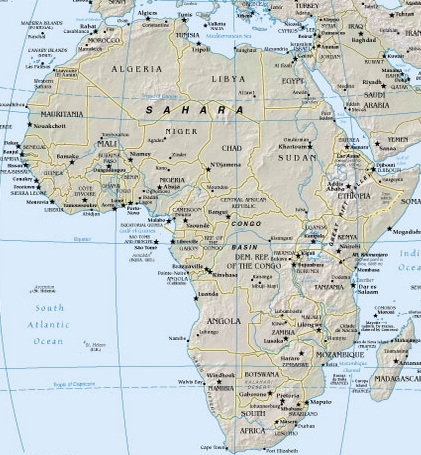Last month's Forum on China-Africa Cooperation (FOCAC), the largest meeting of African and Chinese leaders in almost half a century, underscored Beijing's growing interest in Africa. The attendees included Chinese President Hu Jintao and Premiere Wen Jiabao, as well as 48 African heads of state. The official purpose of the summit was to promote "friendship, peace, cooperation and development." While much of the media's attention has naturally focused on the expanding economic ties between China and Africa, Beijing's increasing political and military presence on the continent also warrant greater attention. Sino-African commercial relations clearly have been booming. Trade rose 35 percent between 2004 and 2005, to $39.7 billion. Chinese investments in Africa also have soared, especially in the energy sector. Today, sub-Saharan Africa supplies almost 30 percent of China's oil. Angola recently replaced Saudi Arabia as the largest national exporter of oil to China. At the FOCAC, Chinese government leaders pledged to adopt a number of measures to enhance economic ties. These include canceling existing debts, doubling China's financial assistance by 2009, and encouraging further Chinese investment in Africa. Yet, strategic as well as commercial considerations have shaped Beijing's African campaign. The leaders of the People's Republic of China have long waged a diplomatic offensive to isolate Taiwan from African countries and thereby negate Taipei's claims to sovereign status. After intense lobbying, the Chinese government managed in late 2005 to induce Senegal to abandon Taiwan and recognize Beijing as the "one China." In the months preceding the FOCAC, Chinese leaders assiduously sought to entice Malawi, Burkina Faso, Sao Tome and Principe, Gambia and Swaziland -- the last five African countries maintaining diplomatic ties with Taiwan -- to send representatives to the gathering. Chinese officials had hoped to showcase the economic and other benefits of joining Beijing's camp. Although this gambit failed, those African countries that did attend FOCAC signed a declaration affirming their support for China's "peaceful reunification."
Beyond Economic Ties, China Asserts Strategic Interests in Africa

